Falling Through The Cracks: Results from the 2019 Hepatitis C In America Survey
Hepatitis C affects over 70 million people worldwide, and approximately 3.5 million Americans. Untreated, the consequences of hepatitis C can be significant, but, fortunately, there is a cure.
Unlike harsh older treatments, today’s treatments are highly effective, have fewer sides effects, and can be completed in just a few months. In fact, many new treatments have cure rates between 95 and 99%.
So, if we know that today’s hep C treatments work, why are millions of people still living with hepatitis C? Why are thousands of patients falling through the cracks?
There are many barriers to treatment
Even though hepatitis C is highly curable, many patients are unable to start treatment. In fact, 52% have never been treated for their hep C. Of this group, 1 in 3 say that cost is the leading barrier to treatment.
Money matters
Just as the high cost of hepatitis C treatment prevents many from getting cured, hepatitis C also places a significant burden on patients who are economically disadvantaged. When asked their household income, 75% of non-cured patients reported less than $30,000 dollars per year. In fact, compared to cured patients, non-cured patients were significantly more likely to fall into this lower-income group. While anyone can be diagnosed with hepatitis C, for those facing financial hardship, the impacts can be devastating.
Patients with a household income below $55,000 were also more likely to be diagnosed with fatty liver disease, muscle & skeletal disorders, or chronic pain.
When it comes to treatment, access is unequal - and unfair.
Sadly, hepatitis C is widely-stigmatized, with many people being unfairly blamed or judged for having hep C. Unfortunately, this stigma can also affect who is and who is not given treatment for hep C, and highly stigmatized groups suffer the most.
It's physical... and emotional
Whether or not a person has access to treatment, hepatitis C doesn’t just hurt the liver. For many, hep C can impact many aspects of quality of life. For example, more than half of all patients worry about the long-term symptoms and effects of hep C, as well as lasting liver damage. Similarly, 40% of patients shared that their self-esteem has gone down since their diagnosis.
Life with hepatitis C can be challenging
Living with hepatitis C can be scary, stressful, and downright lonely. As part of this survey, many community members shared difficult experiences... “People are afraid to be around me”, shared one patient. “Doctors treat me like I’m a walking disease”, said another. Many patients also discussed their treatment struggles, such as “I had hepatitis C for 30 years before I could start treatment” and “Insurance denied my treatment... They said I wasn't sick enough”.
While everyone’s experiences are different, we respect your experiences, appreciate these challenges, and want you to know that you are not alone.
If you are looking for support, please reach out to the HepatitisC.net community. You can also post in our forums, or share your hep C experiences.
The Hepatitis C in America 2019 survey was conducted online from May through September of 2019. Of the 482 people who completed the survey, 263 were classified as “Not cured” (still infected with hepatitis C) and 219 were classified as “Cured” (no longer having the infection). Prior to the survey, all respondents had tested positive for hepatitis C infection and had been diagnosed with chronic hepatitis C infection.
Community Poll
Do you have liver damage from hep C?

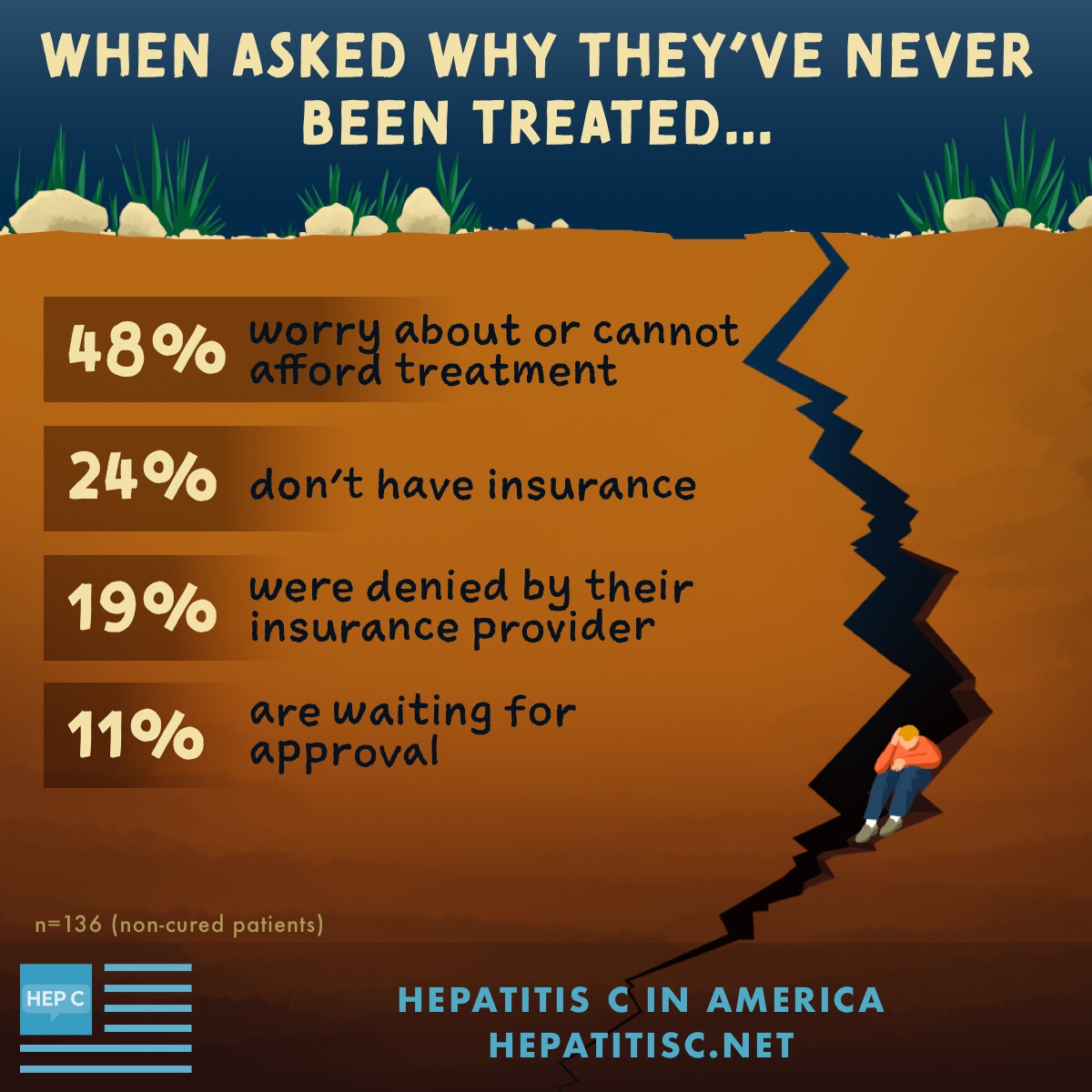
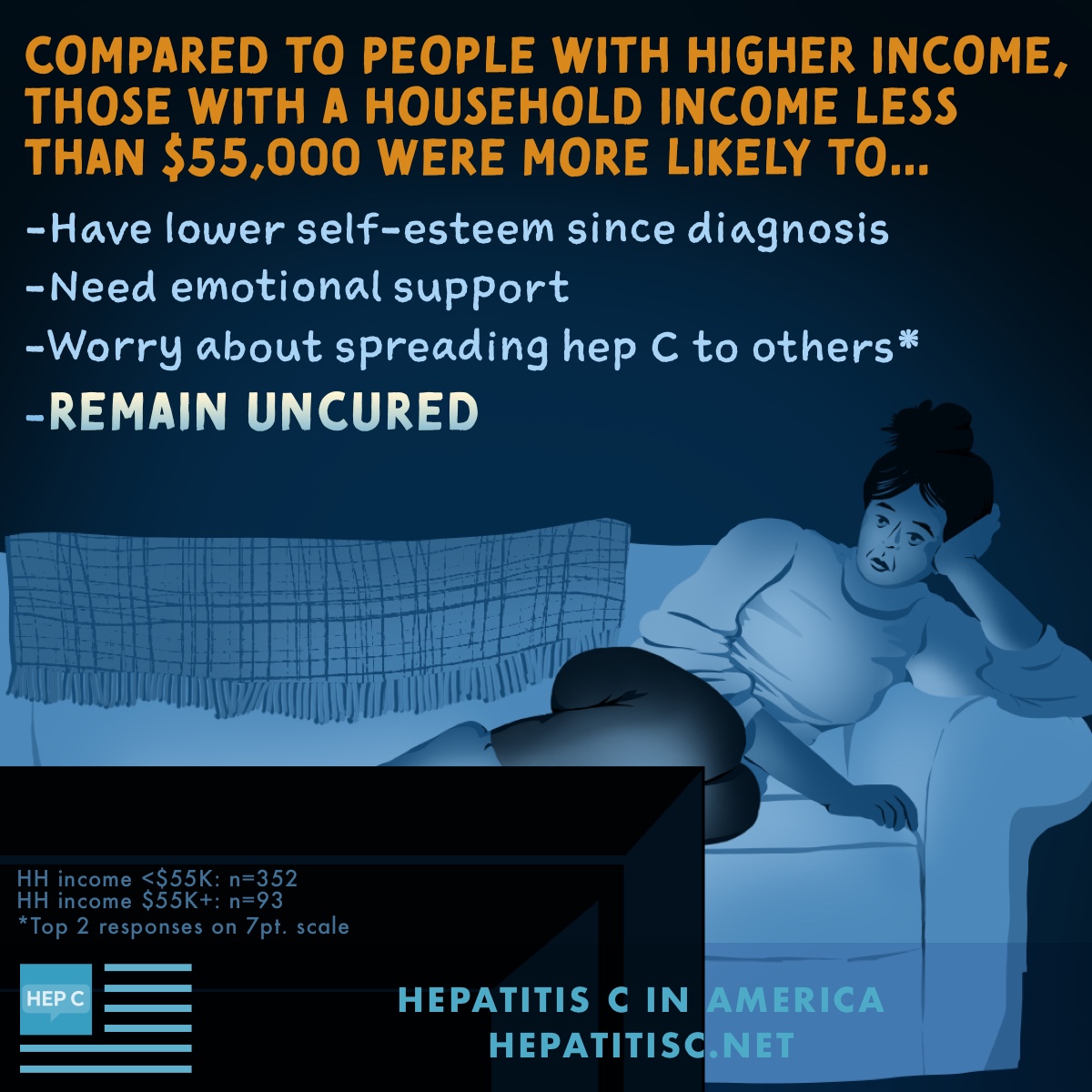
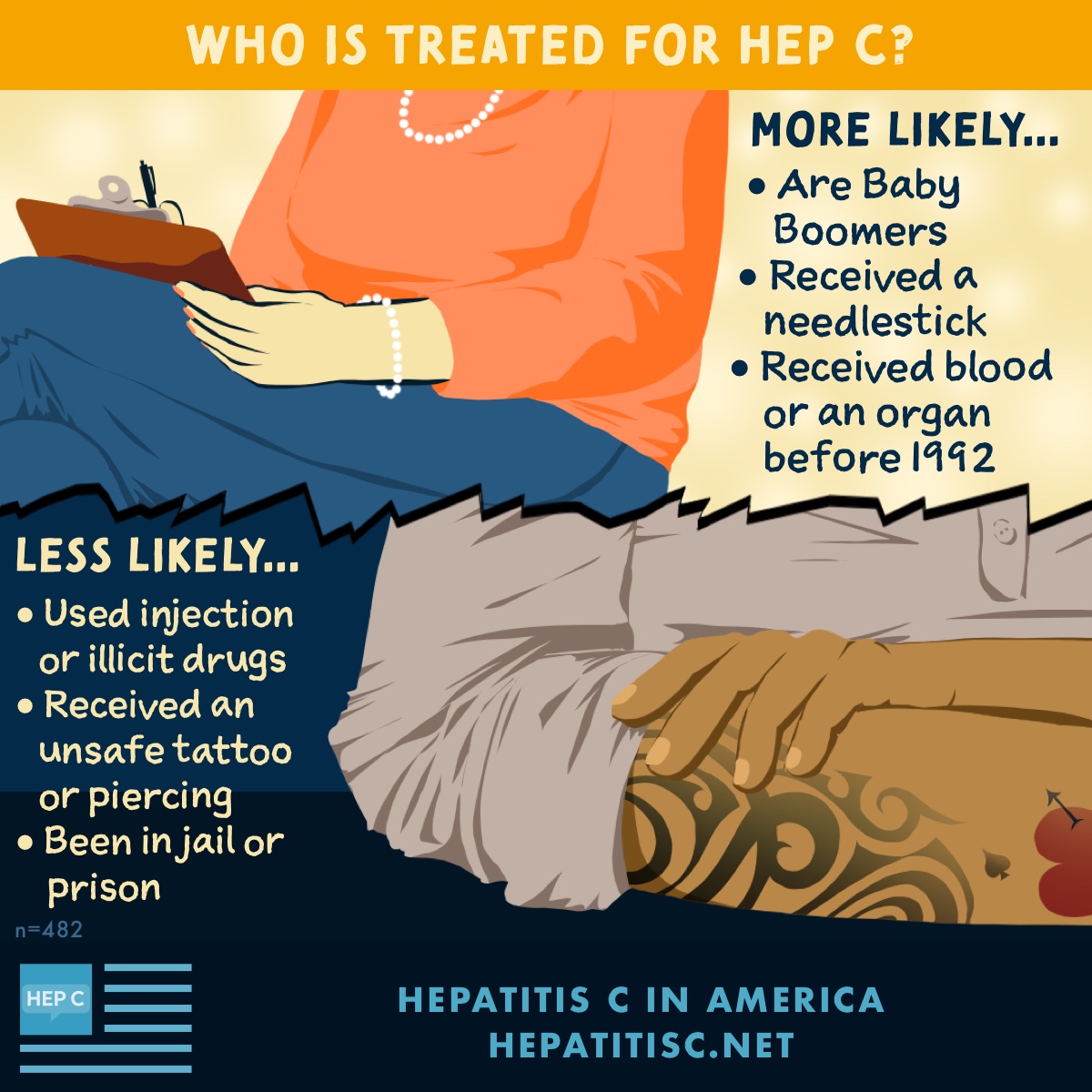
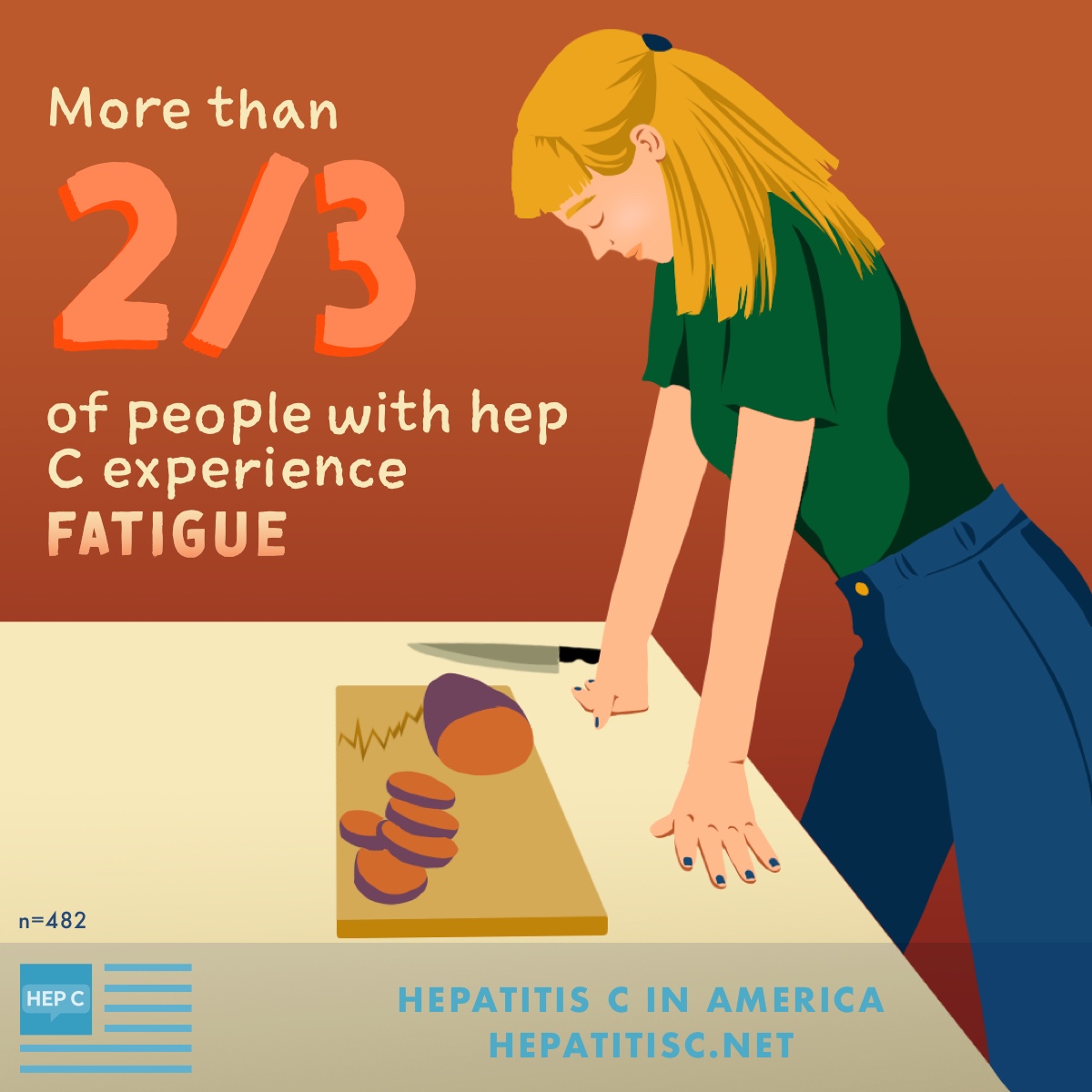
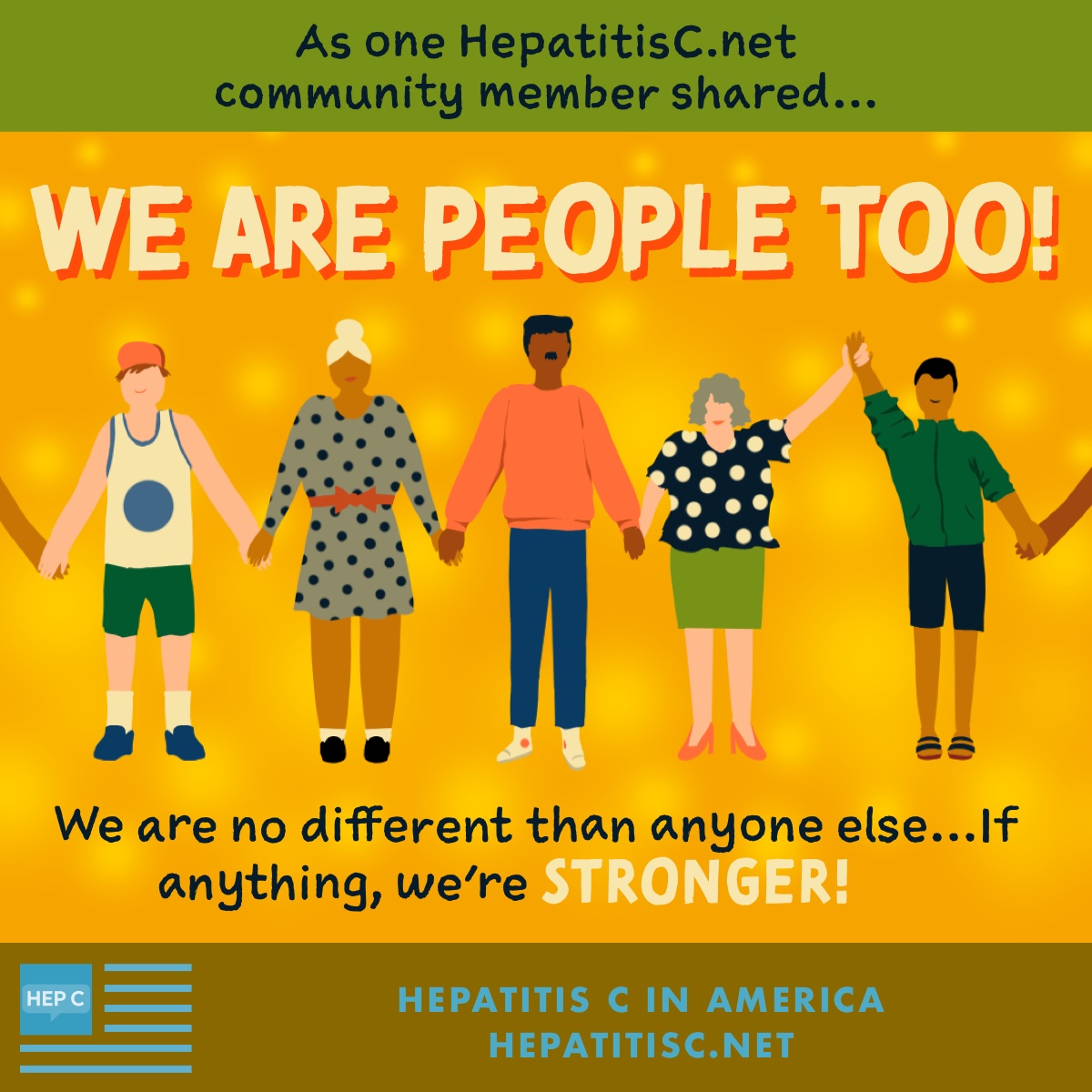
Join the conversation